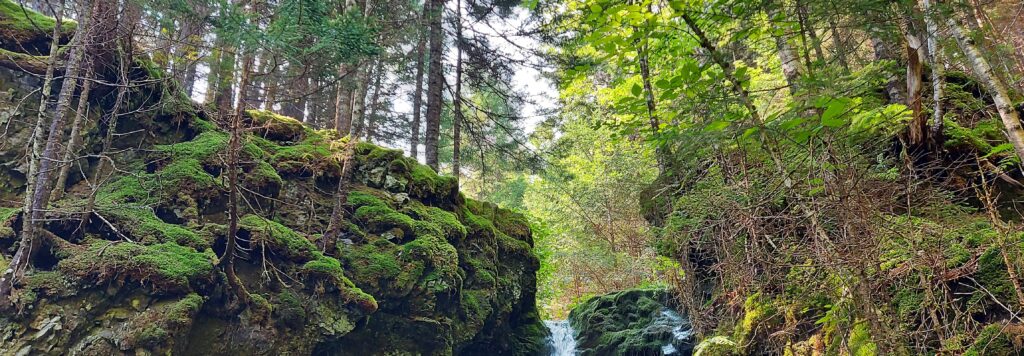Nashwaak Watershed Association | Forest Stewardship
What is the Wabanaki Forest?
nashwaak forest stewardship project
Learn. share. manage. protect.
Acadian forest is the name given by settlers to the forests of eastern Canada. This forest is also known as the Wabanaki forest, and it covers the unceded territory of the Mi’kmaw and Wolastoqiyik people. The name “Wabanaki” can be roughly translated into “dawnland,” and refers to the abundant and bountiful forest of the east, and the relationship between the ecosystem and indigenous people that has been nurtured over time.
The Wabanaki forest is characterized by warm humid summers and cold winters. As a result of this maritime climate, the post glacial landscape and its proximity to the ocean, this forest includes a unique and diverse blend of northern hardwood and boreal forest species. These forests contain up to 32 native tree species.

The historical Wabanaki forest comprises a wide variety and mixture of trees species with a range of ages. These include long-lived and shade tolerant species: sugar maple, red spruce, eastern hemlock, yellow birch, cedar, and beech. The natural age for these trees can be as long as 300 hundred years. The variety in stand age and structure in these forests support a high degree of native biodiversity and ecological function.
Older forests include many large dead and dying trees, as well as wood decaying on the forest floor. These sites contain more biodiversity than anywhere else in the forest.
Additionally, when trees die, small gaps in the forest are formed, creating pockets of sunlight and good conditions for new seedlings to grow continuing the forest succession.



Mosseler, A., J.A.Lynds, and J.E. Major. 2003. “Old-growth forests of the Acadia Forest Region.” Environ. Rev. 11: S47–S77. NRC Canada.
